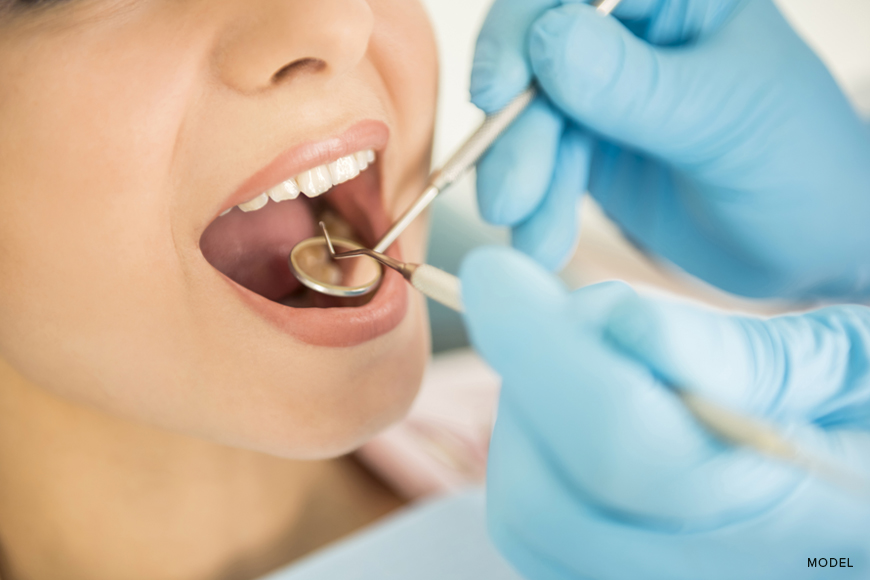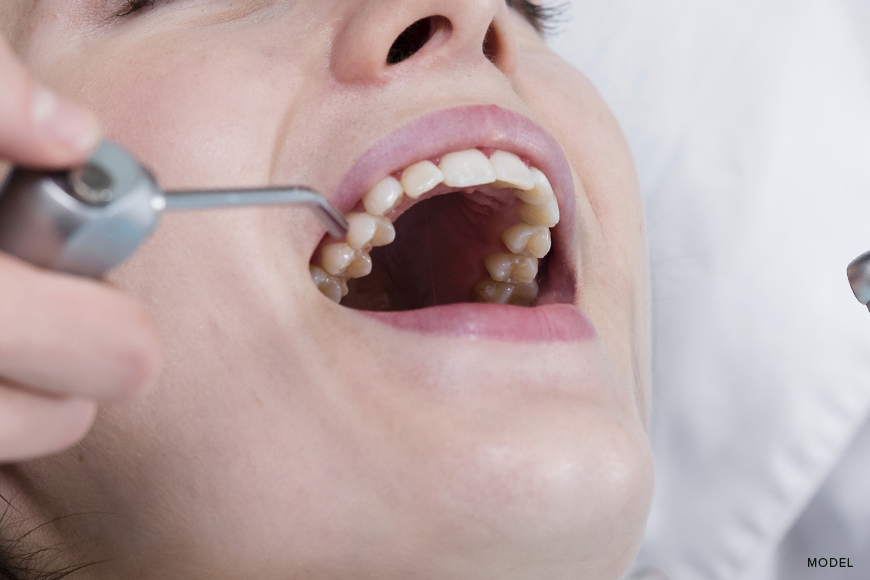Periodontal disease or gum disease is one of the most common oral health problems patients have to face as they age. Without the proper care or knowledge regarding the right way of maintaining a healthy oral condition, this could lead to gum problems such as gingivitis.
While gingivitis might quickly be dealt with through antibiotics in its early stages, untreated gum diseases could potentially worsen and result in tooth decay, jaw damage, and even tooth loss that would require the need for Scaling and Root Planing (SRP) Therapy to restore the teeth to their original state.
What is Scaling and Root Planing?
When gum disease is way past its early stages, the soft tissues surrounding the surface of the teeth will start to get damaged and result in periodontal pockets forming around the mouth of the patient.
Periodontal pockets are deep spaces that open between the teeth and gums where bacteria, plaque, and tartar can begin accumulating and potentially present even worse problems for the patient in the future. Scaling and Root Planing Therapy is a specifically carried out procedure to clear these spaces of the bacteria and other elements residing between the teeth and gums that are causing damage.
What are the Symptoms of Periodontitis?
Recognizing the early signs of periodontitis is crucial, as this can help prevent further damage and the need for a complex procedure. The most common symptoms to look out for are:
- Gums that are either inflamed, swollen, or tender
- Bleeding gums following brushing or flossing
- Sensitive teeth
- Loose teeth
- Receding gum line
- Periodontal pockets that exceed 3mm
- Obvious evidence of bone loss in the jaw area
- Stubborn bad breath even after brushing your teeth
How Does Scaling and Root Planing Work?
Just as with any dental procedure, an initial consultation would need to be scheduled so the doctor can properly evaluate and assess the patient’s current oral health condition and be informed on the proper aftercare steps following the procedure.
Once determined that the patient needs SRP therapy, the doctor would schedule two separate appointments, one for cleaning the upper and lower quadrant and the second for cleaning the other quadrants of the mouth. Each appointment could take 1 to 2 hours, depending on the severity of the gum disease.
Proper Aftercare After SRP Therapy
Following SRP Therapy, the recovery process is just as necessary as the current procedure as this period will determine the outcome for the patient following the treatment. The most common side effects following Scale and Root Planing Therapy are sensitive teeth, slight bleeding, and a change in appearance.
Side effects are unavoidable when dealing with the recovery period following a dental procedure. But with the correct oral hygiene and proper aftercare instructions, patients can minimize the impact of these symptoms and prevent unwanted complications.
-
Give your gums time to heal
In the first 48 hours following SRP Therapy, it’s highly recommended for patients to give their gums the appropriate time it needs to heal. During this time, doctors advise against eating food that would require extensive chewing.
-
Control the swelling
Swelling is a part of dental surgery recovery, but that doesn’t mean patients have to experience the discomfort that comes with it. Cold compression to the swollen area is one of the most highly recommended courses of action to soothe the pain and discomfort of swelling.
-
Explore home remedies
Sometimes prescribed medications aren’t the only way to relieve pain and discomfort during recovery. Home remedies like rinsing your mouth with a glass of water with diluted salt is one way of relieving discomfort while shortening the expected duration of recovery.
Guard Your Mouth Against Periodontitis
Encountering oral health issues is not a rare occurrence, particularly among adults. However, being aware of the early signs of gum disease could be a deciding factor if SRP Therapy is needed to protect your teeth from further unwanted damage.
Just the same, Scaling and Root Planing Therapy has consistently proven its effectiveness by helping patients get another shot at having a perfect smile through thorough scaling and planning of the roots to rid the gums of debris, which are one of the leading causes of oral diseases.
Get in touch with Madison Dentistry LLC now and have your teeth properly assessed and evaluated by board-certified doctors who embody the essence of a family-oriented style of dentistry that ensures that you get treated with the best possible care every step of the way. Book an initial consultation now. No catch!






